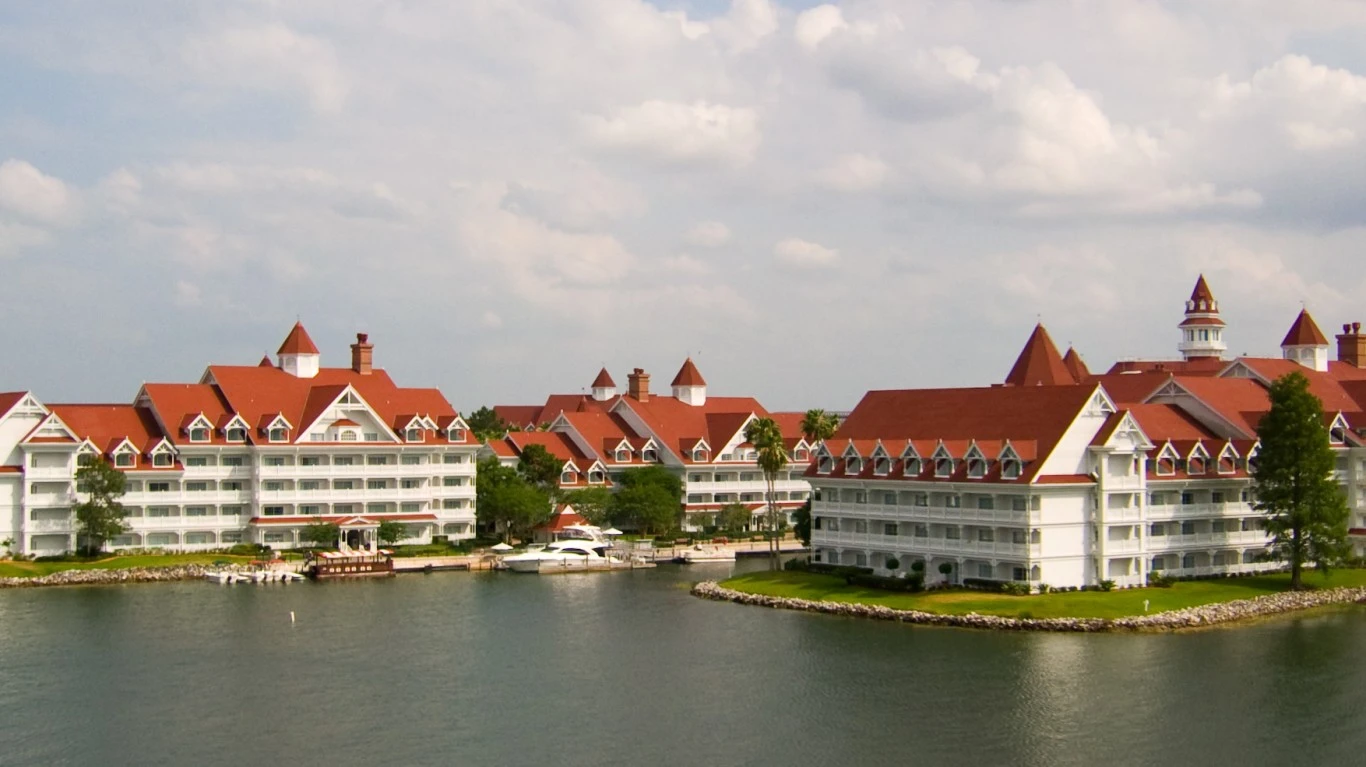
Before specific laws were passed to protect future buyers, timeshares used to be poised as financial investments to entice families to purchase. However, the American Resort Development Association (ARDA) and large developers have begun removing that language from timeshare sales pitches because, after many decades, most timeshares have proven that they are not financial investments.
Instead, owners are willing to sell their timeshares on the resale market for pennies on the dollar. According to ARDA, anyone looking into buying a timeshare should “consider your purchase as an investment in future vacations. It is not real estate or (any) other type of financial investment.” However, one vacation ownership brand has proven its demand, and its value has not wavered.
Disney Vacation Club (DVC) has been one of the leading timeshare brands for almost thirty years and has consistently risen in point value. Data has shown that even within the last ten years, prices on the resale market have skyrocketed. Because resale value has increased, some people would consider DVC an investment, even though that’s not entirely accurate.
Mouse Resale Value
At Disney’s first timeshare resort, Old Key West, points were sold by Disney in 1991 for $51.00 per point. Fast-forward to the present day, Disney sells points at that same resort for $200.00 per point. That is a difference of $22,350 for a standard 150-point contract. Of course, inflation factors into the total difference, but that is still a significant increase.
Current Disney Vacation Club owners looking to sell their points can do so on the timeshare resale market. DVC resale is much cheaper than buying from Disney, and many buyers are hoping to score a deal. Although buyers get a better deal by purchasing resale, owners can still sell their points on the resale market for more than they paid, especially if they bought their points from Disney years ago.
Fidelity Real Estate and many other DVC resale companies have collected years of data from their sold contracts to study the phenomenon of the average DVC resale points value. Their studies have shown that the long-term value of DVC points on the resale market has significantly grown yearly. For example, in May 2022, you could save over $100 per point by buying a contract at Beach Club Villas from Fidelity rather than directly from Disney.
The May 2022 average DVC resale price per point at Fidelity was $134.93, while in May 2021, it was $112.53. So, even though resale is always cheaper, the cost of resale points is also rising.
Yes, owners who bought their DVC contracts in the 90s could sell their points for thousands of dollars more than they paid for them. However, that doesn’t mean that a customer should buy a contract as a way to earn money. Disney Vacation Club points are still a timeshare and come along with yearly fees, which is vital to consider financially.
Nonetheless, thousands of people have profited from selling their DVC points, which is why it can loosely be considered an “investment.”
Past Results vs Future Returns
Some factors could cause a drop in the value of DVC resale points, such as Disney’s consistent changes to resale restrictions. In January 2019, DVC began to restrict making reservations with resale points as the brand new Riviera Resort was approaching its grand opening. Resale buyers that purchase points from one of the “original” DVC resorts can only use their points at those properties.
They also cannot use them to make reservations at any new resorts constructed after 2019. The following resorts are considered original DVC resorts:
- Disney’s Animal Kingdom Villas
- Aulani, Disney Vacation Club Villas
- Bay Lake Tower at Disney’s Contemporary Resort
- Disney’s Beach Club Villas
- Disney’s BoardWalk Villas
- Boulder Ridge Villas at Disney’s Wilderness Lodge
- Copper Creek Villas & Cabins at Disney’s Wilderness Lodge
- The Villas at Disney’s Grand Californian Hotel
- The Villas at Disney’s Grand Floridian Resort
- Disney’s Hilton Head Island Resort
- Disney’s Old Key West Resort
- Disney’s Polynesian Villas & Bungalows
- Disney’s Saratoga Springs Resort
- Disney’s Vero Beach Resort
Furthermore, anyone who buys resale points from a new DVC resort (properties built after 2019, such as the Riviera) can only use those points at their “Home” resort.
Besides resort-hopping or missing out on reservations at newer DVC properties, Disney also began to withhold giving the “Blue Membership Card” to any owners that do not hold at least 150 points purchased directly from Disney Vacation Club. The Blue Membership Card grants owners special privileges and perks.
For example, a benefit of DVC membership is getting discounts on dining or shopping, early access to events, or Members Only Lounges, like the “Top of the World” lounge at Disney’s Bay Lake Tower, which has phenomenal views of the evening fireworks shows.
Of course, Disney has the final say on all restrictions they place on resale buyers. But, so far, the regulations in place haven’t deterred many new or returning buyers from purchasing points on the resale market. Fidelity Real Estate has found that DVC resale points are still rising in value every month. However, changes in the market can always affect these prices, so anyone purchasing DVC points should still see their points as an investment in vacations rather than a financial one.
Previously published at Wealth of Geeks.
Sponsored: Find a Qualified Financial Advisor
Finding a qualified financial advisor doesn’t have to be hard. SmartAsset’s free tool matches you with up to 3 fiduciary financial advisors in your area in 5 minutes. Each advisor has been vetted by SmartAsset and is held to a fiduciary standard to act in your best interests. If you’re ready to be matched with local advisors that can help you achieve your financial goals, get started now.






